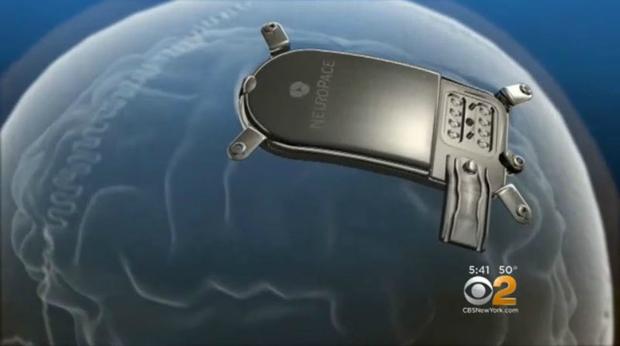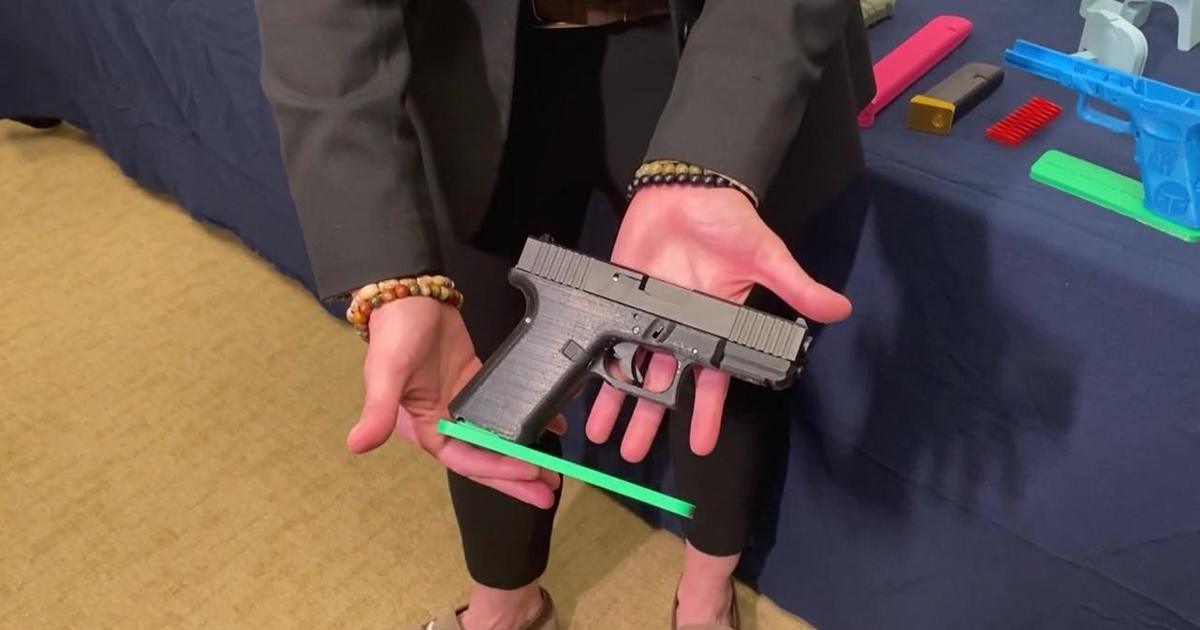Health Watch: Using An Electronic Brain Stimulator To Combat Symptoms Of Epilepsy
NEW YORK (CBSNewYork) -- There is an exciting new development for people with epilepsy whose seizures aren't controlled by drugs or surgery.
It's an electronic stimulator that works sort of like a brain defibrillator.
As CBS2's Dr. Max Gomez reports, it's changing the lives of some people.
Epilepsy is surprisingly common. More than 3 million people in the U.S. alone have it. The vast majority of seizures are not what you see in movies -- the person falling to the ground, shaking all over -- but epilepsy can still be devastating to a person's life.
"It started with, um, a car accident. I drove straight off the road into a river," Emily Borghard said.
MORE: Cannabis Compound CBD May Offer Medical Marijuana Benefits Without The High
That serious accident back when Borghard was in high school was likely due to a seizure. Now 29, she has both big and grand mal types, and the just as disabling and dangerous partial complex types.
"My friends were walking in and finding me dazed and confused," Borghard said. "I'm staring off into space or I was jumbling my words, and then my memory afterwards is severely compromised."
Drugs weren't controlling Emily's seizures and they had serious side effects. Surgery to remove part of the brain where the seizures originate wasn't an option for her because they were coming from multiple sites. Then she volunteered for a clinical trial to have an implantable brain stimulator.
"Probably the most advanced technologically is the responsive neurostimulator or the RNS," Yale University neurologist Dr. Lawrence Hirsch said.
Here's how the RNS works: After extensive imaging and electronic mapping to pinpoint the origin of seizures, small electrodes are placed on the brain and wired to a combination detector and stimulator. The major advance of the RNS system is that it continuously monitors brain waves in real time and if it sees abnormal activity, it sends a miniature shock to the brain to short-circuit the oncoming seizure.
"Two out of three people will be what we call 'a responder.' It means their seizures will cut in half or better. And about one out of seven people will be completely seizure free for at least a year," Dr. Hirsch said.
Emily said she rarely feels the effect of the RNSs.
"I might have a little sensation, but it doesn't stop me," she said. "I just keep going, keep doing what I'm doing, and I'm not down for a whole day like I was before."
With the brain stimulator Emily has been able to get a master's in social work from Fordham and is now working with survivors of domestic violence. There are a variety of treatment options for epilepsy. This device is for people who don't respond to the others or whose seizures come from more than one brain region, Dr. Gomez reported.




